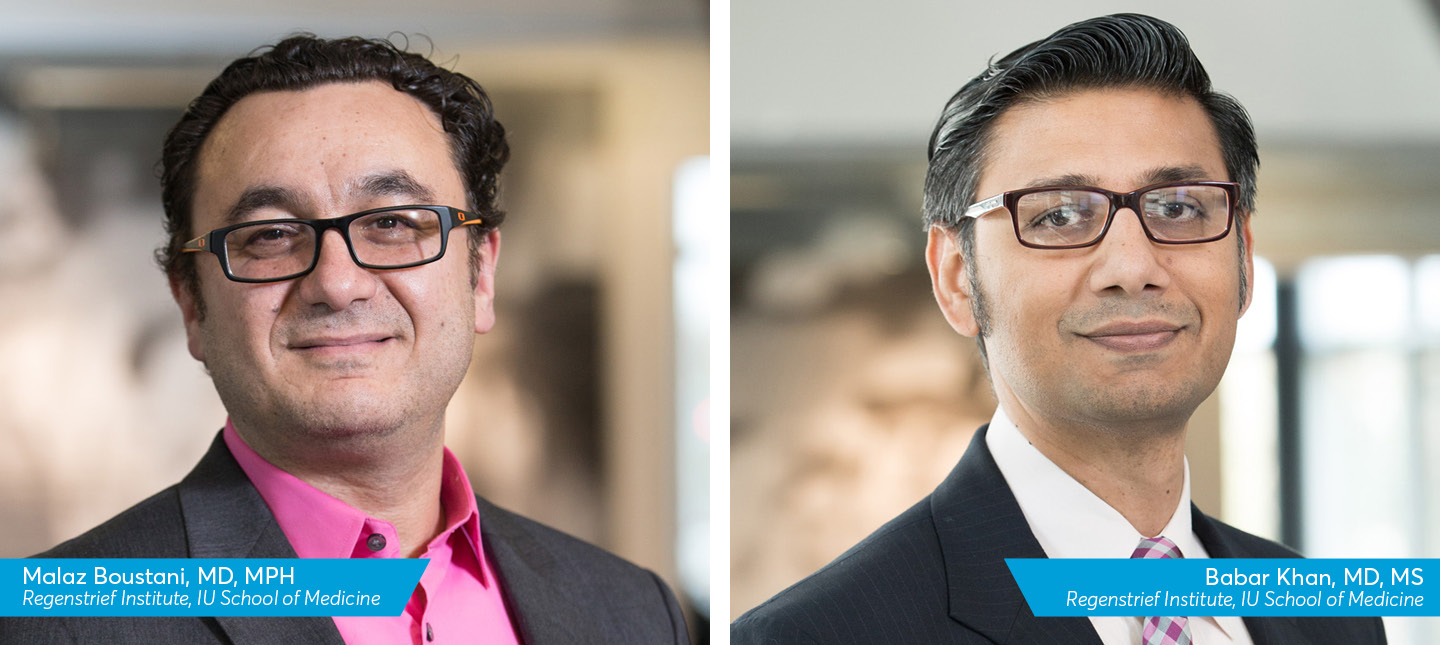It’s been a year since national recommendations issued by the American Cancer Society and the U.S. Multi-Society Task Force called for colorectal cancer (CRC) screening to be lowered to include individuals ages 45 to 49 at average risk for the disease. In an editorial in the journal Clinical Gastroenterology and Hepatology, Regenstrief Institute Research Scientist Thomas Imperiale, M.D., issues a clarion call for individuals, clinicians and healthcare systems to be good stewards of available colonoscopy resources and encourages average risk members of this age group to consider non-invasive screening alternatives.
“The importance of colorectal cancer screening cannot be overstated,” said Dr. Imperiale, a highly respected researcher and practicing gastroenterologist. “But we should tailor screening to the individual — not every 45-to-49-year-old requires colonoscopy for screening. At home, annual FIT [fecal immunochemical test] testing, which looks for blood in the stool and is inexpensive, or stool multi-target DNA and blood testing every three years, are efficient ways to screen those at the low-risk end of the average risk population, which is where most 45-to-49-year-olds fall. Using FIT and stool DNA tests doesn’t simply benefit the individual, it benefits others who need more invasive screening resources. There are only so many colonoscopies that can be performed well in this country every year.”
Roughly seven or eight out of 10 individuals who fall within the range of those for whom colorectal cancer screening is recommended by national guidelines are considered to be at average risk of the disease.
“It’s still too early to know who, in this younger age range, is getting screened. Is it the lower-risk end of average risk individuals who exercise regularly, have a healthful diet — by eating fruits, vegetables and grains and limiting consumption of red meat — and see screening as another personal health responsibility, or is it those at higher risk who smoke or have diabetes or are overweight?,” queries Dr. Imperiale. “It could well be that a larger number of younger individuals will get screened if we encourage non-invasive, easy-to-use home screening tests rather than colonoscopy for “average-risk” asymptomatic individuals until they get to age 50 or perhaps age 55.”
The editorial, “Uptake of Colorectal Cancer Screening Colonoscopy in 45-to-49-year-olds: An Early-Inning View from the Endoscopy Suite,” notes that lowering the age at which to commence average-risk colorectal cancer screening by five years (from 50 to 45) has increased the number of people in the U.S. requiring screening by approximately 20 million. Dr. Imperiale supports a “hybrid” strategy of non-invasive screening for younger individuals at average risk followed by colonoscopy screening for older individuals at average risk.
Thomas F. Imperiale, M.D.
In addition to his role as a research scientist at Regenstrief Institute, Thomas F. Imperiale, M.D., is a core investigator for the U.S. Department of Veterans Affairs Health Services Research and Development Center for Health Information and Communication, Richard L. Roudebush VA Medical Center. He is an Indiana University Distinguished Professor and the Lawrence Lumeng Professor of Gastroenterology and Hepatology at Indiana University School of Medicine and a member of the Indiana University Melvin and Bren Simon Comprehensive Cancer Center.
About Regenstrief Institute
Founded in 1969 in Indianapolis, the Regenstrief Institute is a local, national and global leader dedicated to a world where better information empowers people to end disease and realize true health. A key research partner to Indiana University, Regenstrief and its research scientists are responsible for a growing number of major healthcare innovations and studies. Examples range from the development of global health information technology standards that enable the use and interoperability of electronic health records to improving patient-physician communications, to creating models of care that inform practice and improve the lives of patients around the globe.
Sam Regenstrief, a nationally successful entrepreneur from Connersville, Indiana, founded the institute with the goal of making healthcare more efficient and accessible for everyone. His vision continues to guide the institute’s research mission.
About IU School of Medicine
IU School of Medicine is the largest medical school in the U.S. and is annually ranked among the top medical schools in the nation by U.S. News & World Report. The school offers high-quality medical education, access to leading medical research and rich campus life in nine Indiana cities, including rural and urban locations consistently recognized for livability.










